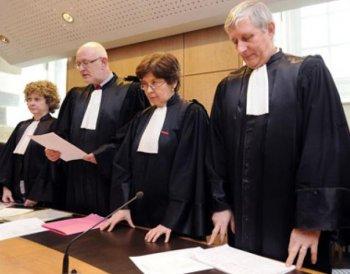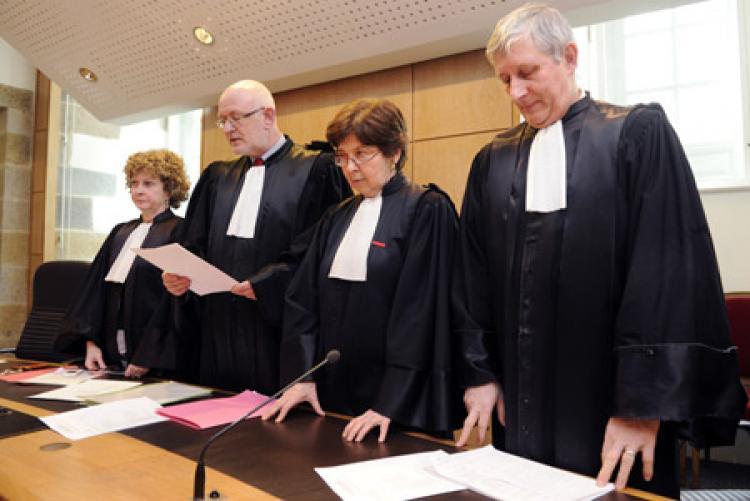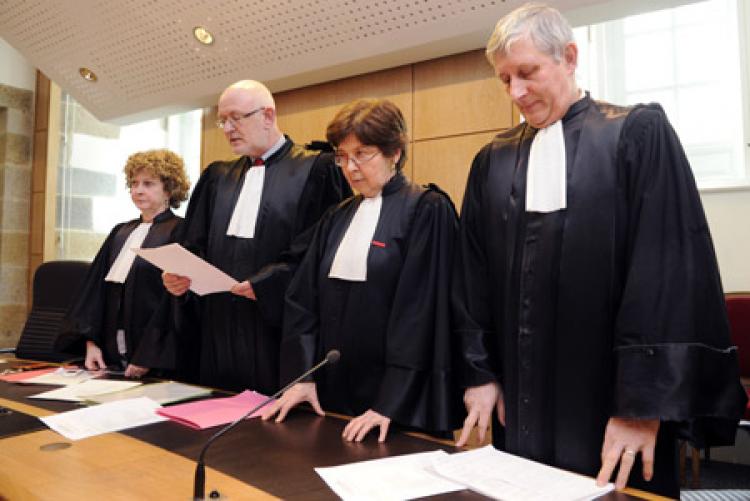Less than two weeks after triggering strikes among the French police—a rare event in the nation’s history—President Nicolas Sarkozy’s government has angered French judges to the point that they have also decided to strike.
As with the police strike, the judges’ protest is in violation of French law, which prohibits law-enforcement—police and the judiciary—from striking.
A recent statement by Sarkozy was the starting point of the judge’s opposition; following the barbarous murder of an 18-year-old girl near Nantes, in the west of France. Sarkozy said on Feb. 3 that that judges who had freed the murderer after his previous offenses would have to face consequences. Sarkozy pointed to a “severe mishandling” of justice in the criminal case, which had made headlines in all French newspapers.
In a statement, France’s major judicial union, USM (Union Syndicale des Magistrats), accused public authorities of not giving magistrates the resources to do their jobs and then “attempting to shift responsibilities for this drama to law professionals,” who they say have been given inadequate resources to follow up with offenders.
“We accuse the head of state of using lies to make people believe that crime recurrence can be easily eradicated, whereas everyone knows that this is a complex phenomenon,” the statement read. “We accuse the government of severely neglecting prevention by not providing the means, tools, and budget for an efficient performance of duties.”
By Feb. 8, 50 courts of justice around the country had canceled or postponed hearings, and 30 more said they also plan cancellations. According to USM, half of the profession is participating in the protests with many planning to participate in a full national strike on Thursday.
A meeting organized by French Prime Minister François Fillon did not help ease tensions, and after the meeting Fillon immediately stated that the magistrates’ reaction was “disproportionate.” French government spokesperson François Baroin went one step further and claimed the protests are organized by labor unions that “refuse to face their responsibilities.”
The European Commission revealed in an October 2010 report that France is far behind many European countries in its budget for Justice. Germany, Spain, and the United Kingdom, spend at least twice as much on Justice and have double the number of magistrates, which may also explain why French Justice is one of the slowest and least efficient in Europe.
As with the police strike, the judges’ protest is in violation of French law, which prohibits law-enforcement—police and the judiciary—from striking.
A recent statement by Sarkozy was the starting point of the judge’s opposition; following the barbarous murder of an 18-year-old girl near Nantes, in the west of France. Sarkozy said on Feb. 3 that that judges who had freed the murderer after his previous offenses would have to face consequences. Sarkozy pointed to a “severe mishandling” of justice in the criminal case, which had made headlines in all French newspapers.
In a statement, France’s major judicial union, USM (Union Syndicale des Magistrats), accused public authorities of not giving magistrates the resources to do their jobs and then “attempting to shift responsibilities for this drama to law professionals,” who they say have been given inadequate resources to follow up with offenders.
“We accuse the head of state of using lies to make people believe that crime recurrence can be easily eradicated, whereas everyone knows that this is a complex phenomenon,” the statement read. “We accuse the government of severely neglecting prevention by not providing the means, tools, and budget for an efficient performance of duties.”
By Feb. 8, 50 courts of justice around the country had canceled or postponed hearings, and 30 more said they also plan cancellations. According to USM, half of the profession is participating in the protests with many planning to participate in a full national strike on Thursday.
A meeting organized by French Prime Minister François Fillon did not help ease tensions, and after the meeting Fillon immediately stated that the magistrates’ reaction was “disproportionate.” French government spokesperson François Baroin went one step further and claimed the protests are organized by labor unions that “refuse to face their responsibilities.”
The European Commission revealed in an October 2010 report that France is far behind many European countries in its budget for Justice. Germany, Spain, and the United Kingdom, spend at least twice as much on Justice and have double the number of magistrates, which may also explain why French Justice is one of the slowest and least efficient in Europe.







